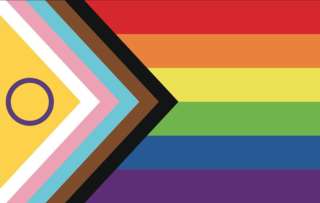Sex
The Meaning of LGBTQ+ Pride
The purpose and history of Pride.
Posted June 13, 2022 Reviewed by Lybi Ma
June is recognized as Pride month around the globe and, here in Los Angeles, our local news networks enthusiastically cover our local events. Major celebrities host and perform, and it feels like the whole city is involved. How times have changed.
The History of LGBTQ Pride
The history of Pride in Los Angeles dates back to 1970 when it was organized as a political backlash against police persecution of gays and lesbians. More specifically, Pride events coalesced the year following the New York City Police Department's raid of the Stonewall Inn (bar) in 1969 and the riots that ensued. Gays and lesbians marched in solidarity, demanding that city officials and police departments leave them to their peace—their safe gathering places.
Did those early organizers ever imagine that Pride celebrations would spring up around the world? São Paulo, Brazil, and New York City's Pride Parades have attracted 4 to 5 million people a year. Could our early organizers have dreamed that attendees today would be having so much fun on the streets where they were beaten, their peers murdered?
Not long ago, corporate involvement or sponsorship of a gay event would have been a kiss of death. Now Pride parades are bumper to bumper with companies flying rainbow flags. From beer brands to insurance companies, Pride has become big business. And if you're a company trying to attract top talent, you better be signaling that you're welcoming everybody.
Pride events have traditionally been hosted in neighborhoods that LGBTQ+ folks called home. Some now feel that Pride events are losing their necessity because those individuals are leaving those communities. As acceptance of sexual minorities grows, so too has their ability to live more comfortably within broader society. Thus, some say, society is growing towards a homogenization that dissolves the once protective enclaves like L.A.'s West Hollywood and Chicago's Boystown.
However, L.A. Pride 2018 attracted such huge numbers that the festival reached capacity, and visitors were turned away. This year will be telling of how Pride events recover from pandemic cancellations. Regardless of attendance, Pride is still vitally important, as are safe neighborhoods. And beyond the relative safety of large liberal cities, Pride events in small towns are just being born.
In the far north city of Marquette, Michigan, this year's Upper Peninsula Rainbow Pride celebration was expected to attract 2,000 people—their biggest attendance yet. First, a handful, then a hundred—all because a few intrepid souls dared to take to the streets saying, Gay is okay. For those living in conservative communities, Pride could be the only opportunity of the year to be themselves in public. That begs the question, what does "be themselves" mean?
Part of the appeal of Pride is that all are welcome to be themselves. To dress up, dance, party, hold hands, kiss, and perhaps find the love of their life. UP Rainbow Pride explains it succinctly: "Pride is unconditional love, the belief that everyone should be free to celebrate their identity, regardless of race, gender, sex, sexual orientation, education, religion, disability, financial or familial status."
Everyone has an identity and, at Pride, everyone is free to express it—straight allies included. Yes, nowadays it's not uncommon for Pride to look like any other joyous street fair with parents, grandparents, and children in strollers. Although, with perhaps a few more rainbow Speedos than your average farmer's market. But that is what freedom of expression is about. It does not, and should not, come with the judgment of a dress code.
This week, Pride has been described as being somewhere to freely express our sexuality. Pair that with terms like sexual orientation and sexual preference, and who would be to blame to think that Pride is all about sex?
This is where history is important. The Stonewall Riots and those early Pride marches were about politics. Our constitutionally protected freedoms and our personhood. Freedom to assemble, freedom of speech, freedom to peacefully and productively contribute to society, and freedom to love. Yet, also, freedom to protest police brutality and reveal the motives of bigoted politicians.
Pride links arm in arm with civil rights of all kinds. Pride is all of us because it is symbolic of the progress that arises out of hatred. We see hatred everywhere these days, and Pride can give us hope that change is possible. Dare I say, inevitable? Thus, sex and sexuality are only facets of that vitally important rainbow umbrella striving to promote and protect all forms of human love, self-expression, and cultural identity.
This summer you will see people use expanding acronyms like LGBTQIA2-S+. It's okay if you don't remember what they stand for—we don't either. Acronyms are intended to be easier ways of representing rich and complex spectrums of sexualities, genders, cultures, traditions, and outward expressions of internal experiences. Attending Pride doesn't mean you're gay.
Being gay doesn't mean you're sexually active. LGBTQIA2-S+ doesn't capture the diversity of all identities. The word "Queer" has been reclaimed to encompass anybody who does not identify as heterosexual or cisgender. The word cisgender describes a person whose gender identity corresponds to their sex assigned at birth.
All segments of life are curiously complex and that is something to be celebrated. Below is a quick reference guide to those acronyms:
Acronyms
- L — Lesbian
- G — Gay
- B — Bisexual
- T — Transgender
- Q — Queer or Questioning
- I — Intersex
- A — Asexual
- 2-S — Two-Spirit
- + — Including but not limited to Pansexual, Demisexual, Ally, Non-Binary, and Genderqueer

For additional information about Pride 2022 current events and the latest news affecting the LGBTQI+ community, please follow my updates on LinkedIn. Connect with me to be notified of my latest articles.
References




